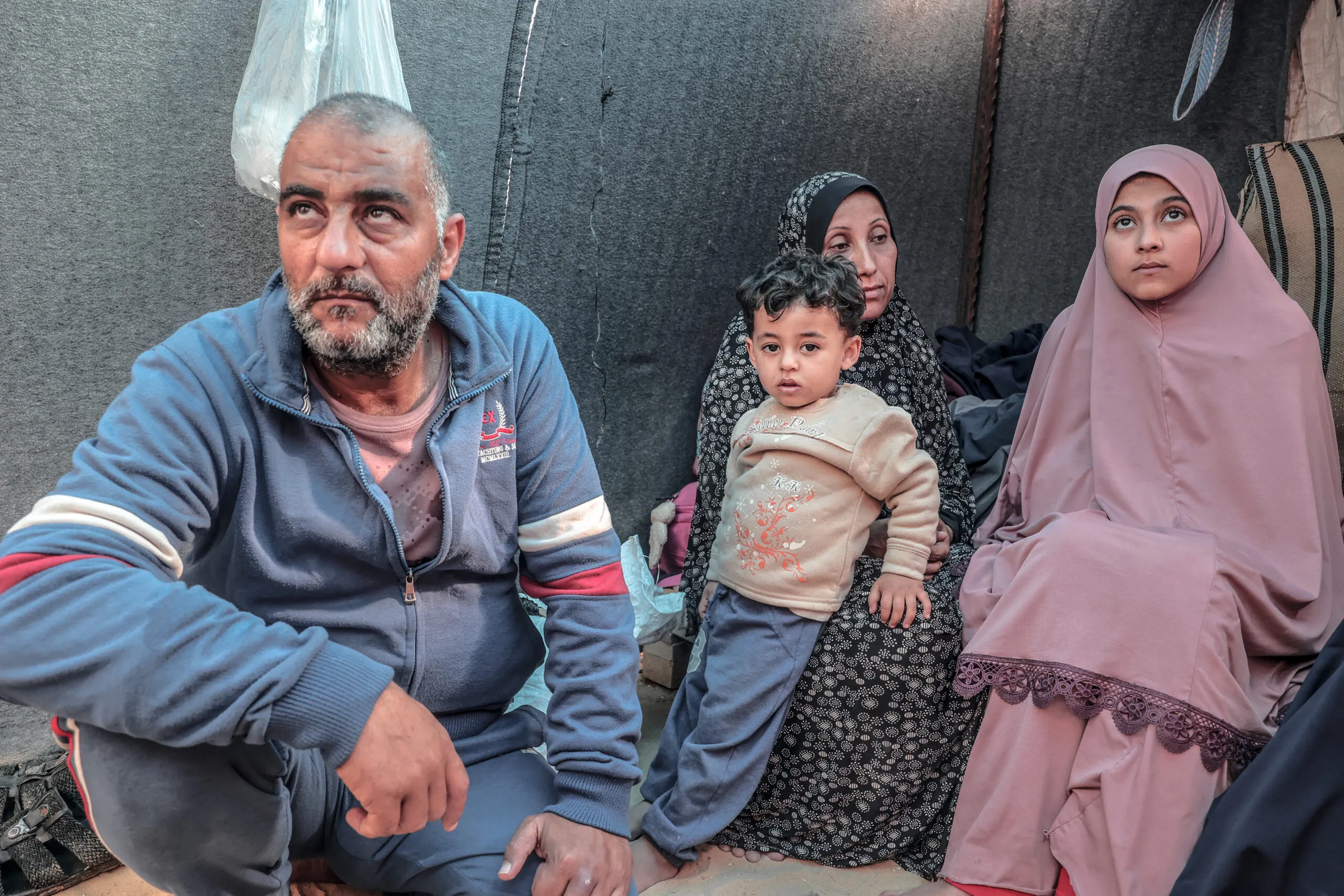“Five months, 152 days, 3,648 hours of horrors have passed in Gaza. Since early October, over 100,000 women, men, and children have been killed or wounded. At least one in 23 people in Gaza are either dead or severely injured; over 80% are displaced, fearing for their lives with every passing second. Two mothers have died every hour since the start of the escalation, thousands of children are now orphans, and 2.3 million Palestinians are under imminent threat of starvation. For 152 days, every day, scores of children have been killed and injured.
Behind all these numbers, behind all these facts, are real people. Faces of crying children who are mourning their parents, eyes of mothers empty as they have lost their babies and cannot imagine how the world can continue without them, shaking bodies of fathers trying to find their sons and daughters under the rubble after yet another airstrike. Children have stopped speaking because of what they have seen, mothers must feed their children animal feed or grass to fill their little stomachs and add another day to their lives.
As this war continues, we try to find new words to capture what is unfolding. We try to find ways of describing what people in Gaza are going through, hoping that our accounts will finally bring an end to the bloodshed. Five months since the beginning of the latest war, we are at a crossroads, holding our breath for what is coming next. At least 15 children have already starved to death – and this is only the data from one hospital. In the north, one in six children under two years of age is already so acutely malnourished that they might not survive tomorrow. We know that children’s cognitive and physical development will severely suffer, that the bodies, hearts, and minds of an entire generation will be impacted for their entire future even if they survive starvation now.
Yet, aid is still not getting in, and our humanitarian aid workers are risking their lives doing their jobs. Yet, the military blockade continues, impeding people’s ability to access food, cutting off humanitarian corridors that should serve as a lifeline for people in desperate need. Yet, attacks are intensifying and the prospect of a ground assault on Rafah, where over 1.3 million people are sheltering, would be a nightmare beyond anything we can imagine.
After five months of conflict, displacement, hunger, lack of medical care and clean water are the reality for 2.3 million people. A recent CARE analysis has shown that 84% of the lights in Gaza are extinguished, and 70% of the hospitals have little or no nighttime light. For months now we hear of surgeons operating without anaesthesia, women having C-sections and children’s limbs being amputated without even simple painkillers. Our partners are telling us that the shelters they are running see women burying their newborns every day, as they do not have access to critical medical care, or simply because there is no way to feed them.
This is a crisis unlike anything we have ever seen before. Five months on, despite everything, we are not giving up hope and our goal of a safer, more peaceful future for all. The longer this conflict lasts, the louder we will shout for an end to these hostilities. The louder we will call for an immediate ceasefire and for an end to this war. We cannot stop hoping, and we will not stop assisting people in desperate need. We owe it to the many who have already lost their lives. We owe it to all those who survive in this nightmare and are counting on us.”
CARE asks for an immediate and sustained ceasefire, the free flow of humanitarian aid inside and throughout Gaza, the evacuation of the sick and wounded, and the release of all hostages.
Notes to editors
CARE International has been operating in Gaza and the West Bank since 1948. Prior to the current conflict, we were supporting about 200,000 Palestinians in Gaza and we continue to support about 300,000 in the West Bank to meet basic food needs, improve farming and agriculture, empower women to earn an income, support women’s leadership, and improve health programs focused on violence against women and girls, reproductive health, and children’s mental health.
Since the escalation of the conflict, the CARE team in Gaza was able to reach over 250,000 vulnerable displaced people with hygiene kits, shelter items such as blankets and mattresses, and drinking water. CARE also reached over 67,000 people with medical support, including medications, medical supplies, and primary health services.
For media inquiries, please contact: usa.media@care.org

